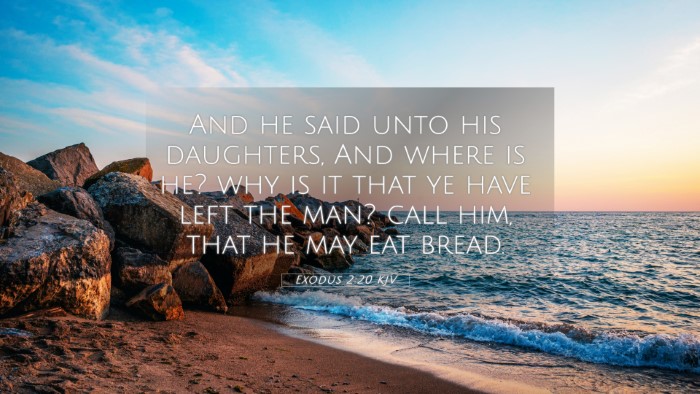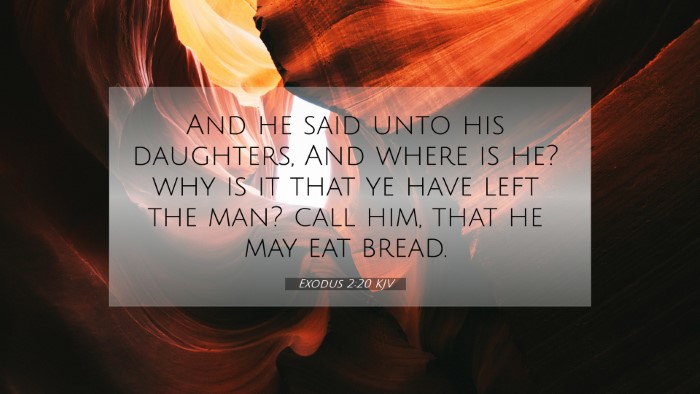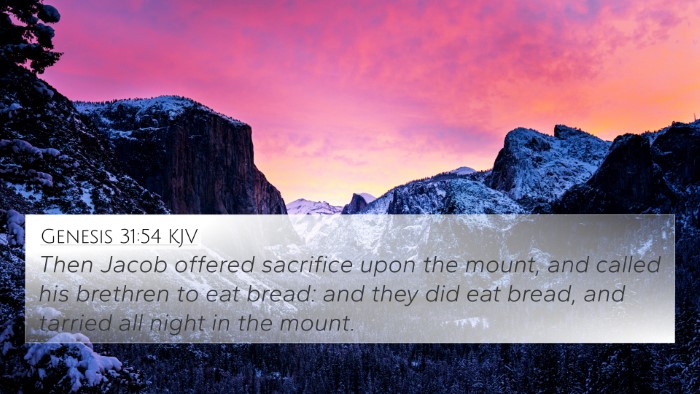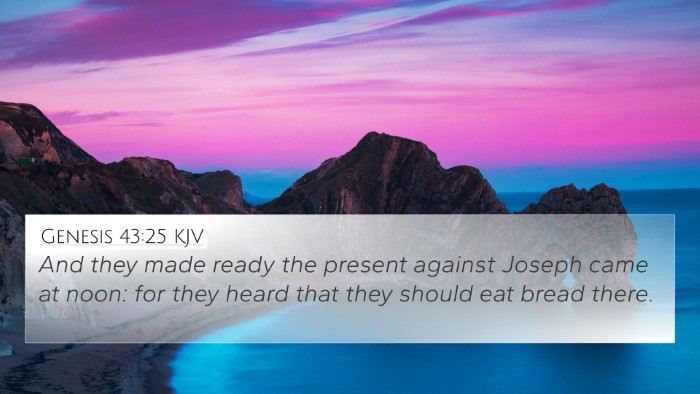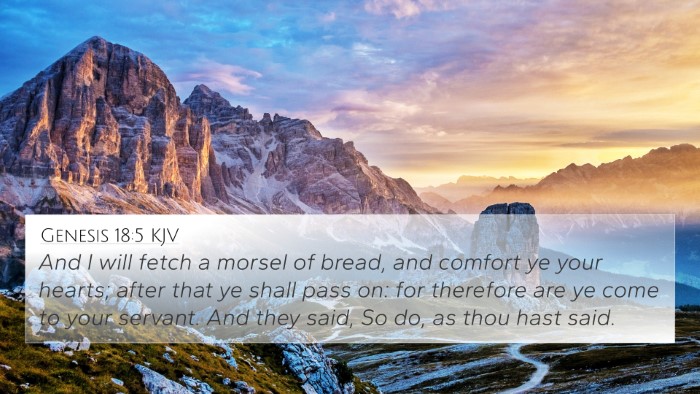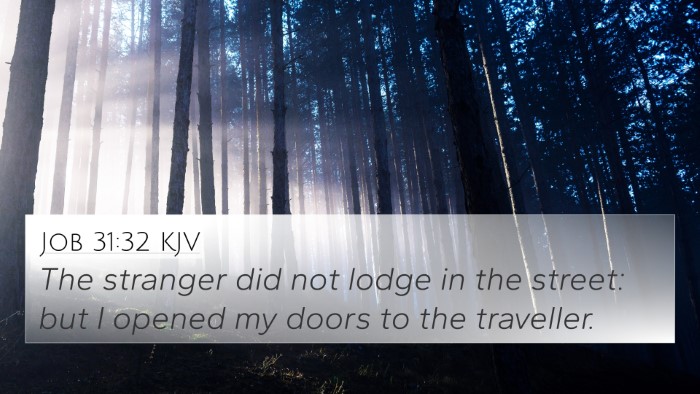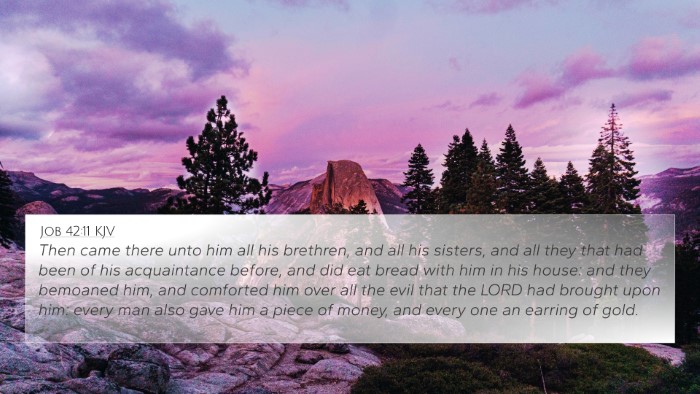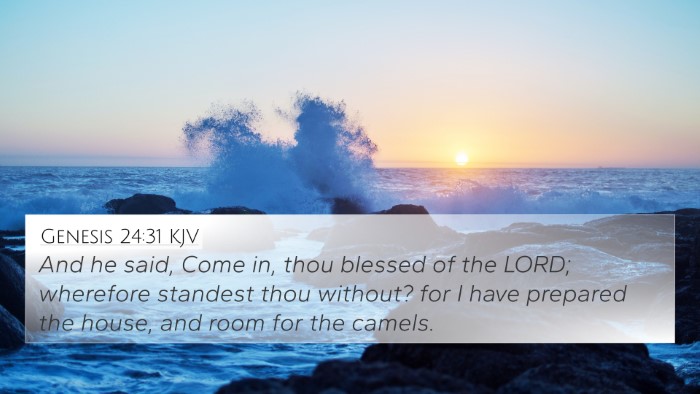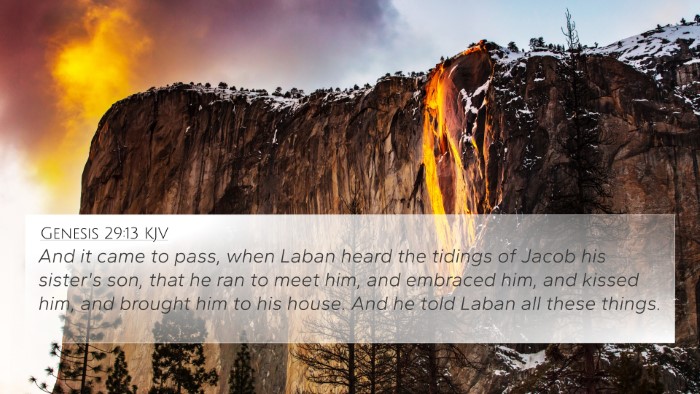Exodus 2:20 - Meaning and Insights from Public Domain Commentaries
Exodus 2:20 states: "And he said unto his daughters, And where is he? Why is it that ye have left the man? Call him, that he may eat bread."
This verse captures a moment in the ongoing narrative of Moses, providing insights into his early life and the dynamics within his family.
Summary of Meaning
In this verse, the focus is on the figure of Reuel, Moses's father-in-law, a Midianite priest. His inquiry reflects both curiosity and hospitality. The significance of this episode lies in the unfolding theme of divine providence and the establishment of Moses's future role.
Commentaries Insights
-
Matthew Henry:
Henry emphasizes Reuel's hospitality and care for Moses, showcasing a kindness that highlights the importance of welcoming strangers. This moment sets the stage for Moses's integral role in Israel's salvation.
-
Albert Barnes:
Barnes points out that the question reflects interests in building relationships, which leads to further developments in Moses's life. It also illustrates the essential value placed on communal meals as symbols of covenant and friendship.
-
Adam Clarke:
Clarke notes the cultural implications of calling a family member to partake in a meal, suggesting that this act not only signifies sustenance but also the forging of bonds and future alliances.
Themes and Cross-Referencing Insights
This verse connects various themes throughout the Bible, especially in relation to hospitality, providence, and the formative experiences in Moses's life. The following cross-references enhance understanding:
- Acts 7:29-30: Reflects on Moses's upbringing and the role these early experiences play in shaping his leadership.
- Exodus 2:1-10: Discusses the circumstances surrounding Moses’s early life and divine protection.
- Genesis 18:1-5: Illustrates hospitality towards strangers, parallel to Reuel's welcoming demeanor.
- Exodus 18:1-12: The importance of familial relations and hospitality in Moses's later life.
- Psalm 23:5: The symbolism of being invited to a table signifies a covenant relationship, enhancing the communal aspect noted by Reuel.
- Luke 14:12-14: Jesus’s teachings on inviting those who cannot repay, echoing the spirit of Reuel's invitation.
- Hebrews 13:2: Encouragement towards hospitality, reinforcing the value placed on welcoming others as seen with Reuel.
Conclusion
Exodus 2:20 serves as a pivotal moment, richly infused with themes of hospitality, the beginnings of Moses's journey, and the developing narrative of salvation history. Understanding this verse through the prism of public domain commentaries and cross-referencing other biblical texts establishes a broader context that emphasizes the values of familial ties, community, and divine providence in the biblical narrative.
Keywords for Further Study
The following keyword themes may aid those seeking greater clarity through scripture:
- Bible verse cross-references
- Connections between Bible verses
- Linking Bible scriptures
- Comparative Bible verse analysis
- Bible verses that relate to each other
- Cross-referencing Biblical texts
- Thematic Bible verse connections
- Bible verse parallels
- Scriptural cross-referencing
- Inter-Biblical dialogue
For those engaging in deeper biblical studies, utilizing tools for Bible cross-referencing, such as a Bible concordance, can yield invaluable insights into scripture connections, enhancing understanding and facilitating a richer study experience.

